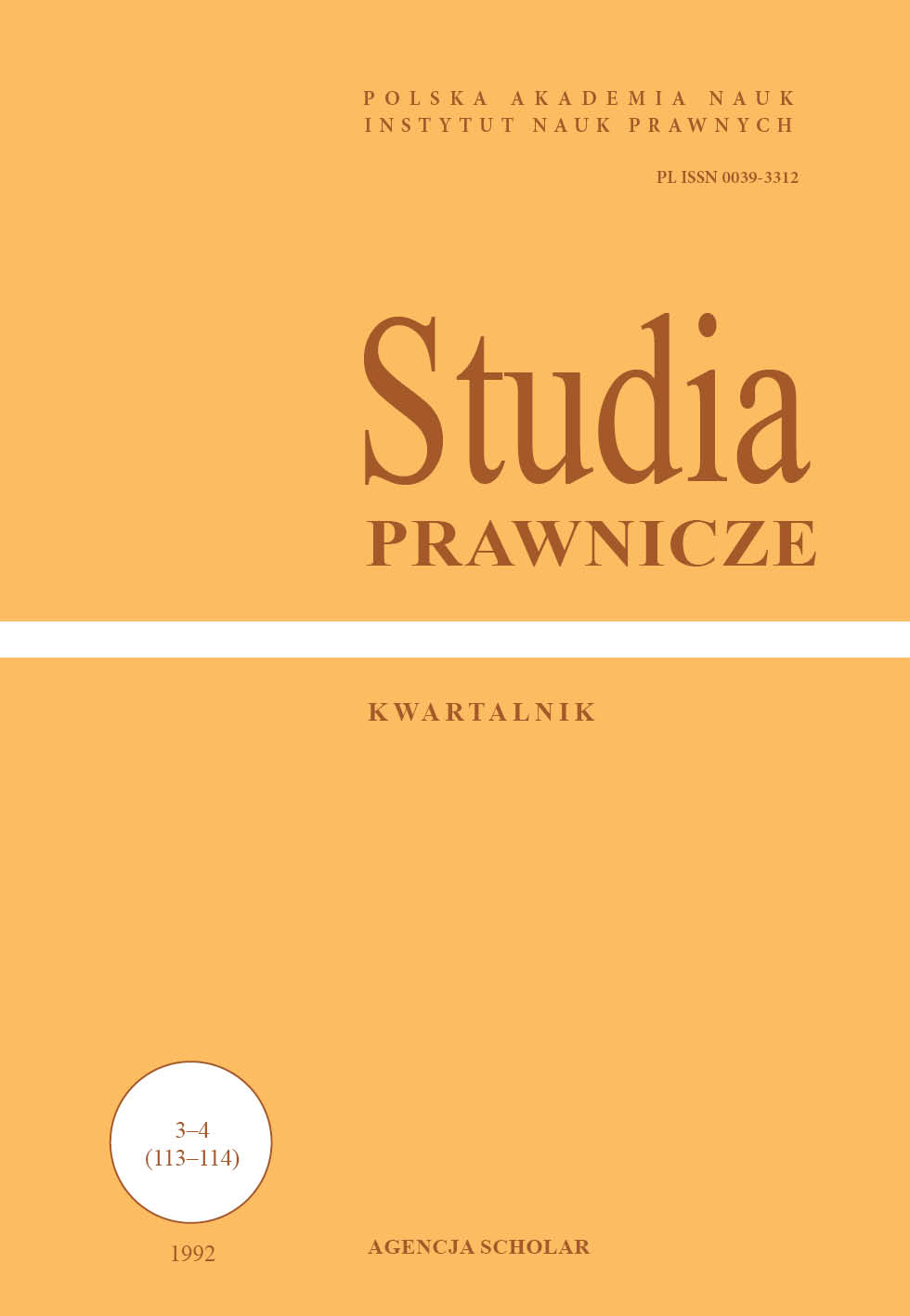Ochrona środowiska na terenach dużych aglomeracji miejskich w świetle zmian samorządowych - na przykładzie aglomeracji stołecznej
Environmental protection in large conurbations in the light of local government changes - based on the example of the capital city conurbation
Author(s): Jerzy RychlikSubject(s): Law, Constitution, Jurisprudence
Published by: Instytut Nauk Prawnych PAN
Keywords: urban agglomerations; environmental protection; territorial self-government; natural environment; goverment administration; own tasks
Summary/Abstract: An analysis of the local government changes made in 1990 in the context of environmental protection changes allows several comments to be made. The main one can be reduced to the statement that the role of the municipality in shaping ecopolitics and exercising environmental protection within its area is limited. Although in Article 7(1) of the Local Government Act, the legislator enumerates the own tasks of the municipalities in this area, it is only the provisions of the substantive administrative law that de facto decide it regards to which of these the municipality may make decisions on its own. These, in turn, explicitly allocate the majority of ecological competences to the regions and voivodes. Thus, it should be deemed positive that the legislator has clearly defined the own tasks of the municipality in this area; the weak point of the changes made is the lack of a foundation for these tasks with the relevant competences.In the case of large conurbations, especially one like Warsaw, the matter is further complicated by the fact that the capital city operates within a separate regime. Unfortunately, neither the Act on the Regime of the Capital City of Warsaw nor its Interim Statute facilitate the resolution of the division of tasks and competencies between the municipalities-districts and the Association in city-wide ecological matters. The equal treatment, in terms of tasks and competences, of small municipalities and large metropolitan municipalities (often with even several hundred thousand inhabitants) by the legislator is the reason why environmental protection tasks (e.g. measurement control, component protection, etc.) are not implemented in both these cases. The municipalities experience different causes indicating why these activities are not performed, however. In the case of small municipalities, the causes can be reduced to the lack of adequate organisational and technical facilities and specialised staff, which makes them dependent on the efficiency of the provincial administration to carry out these tasks. These limitations are absent in the context of large metropolitan municipalities. This is because such units are substantively (technically and organisationally) prepared to undertake such tasks.For these reasons I advocate a move away from the equal treatment of municipalities regardless of their size, in the case of amendments to the Local Government and Competence Act. If the current model of local government is maintained, consideration could be given to the separate treatment of small and metropolitan municipalities by the legislator, transferring most of the existing powers of regions and voivodes to the latter.The author believes that the proposed changes to the system and administrative division of the capital city may be helpful in the case of Warsaw. One of the proposed changes assumes the creation of a Warsaw Metropolitan Unit, the heart of which will be the capital city municipality (with an area similar to that of the interbellum capital city), characterised by a highly urbanised structure and its specific ecological problems, as well as 10 peripheral municipalities, the eco-problems of which are different than those of the city centre.
Journal: Studia Prawnicze
- Issue Year: 1992
- Issue No: 3-4
- Page Range: 173-187
- Page Count: 15
- Language: Polish

